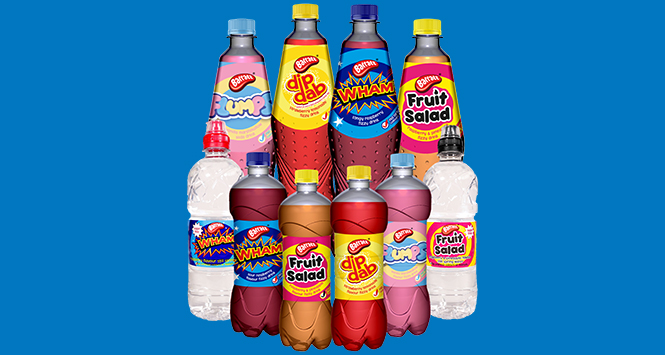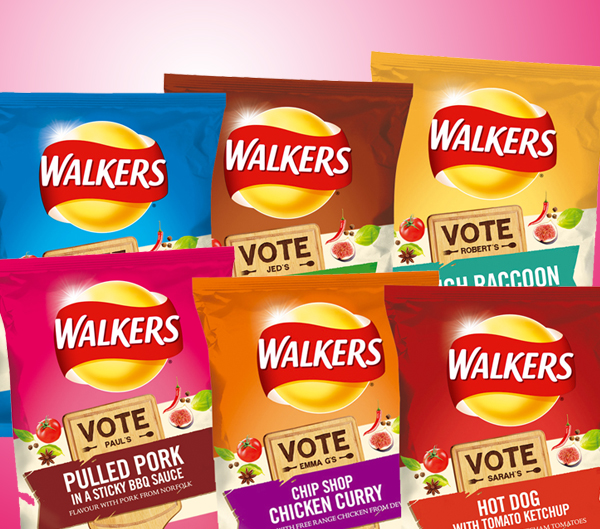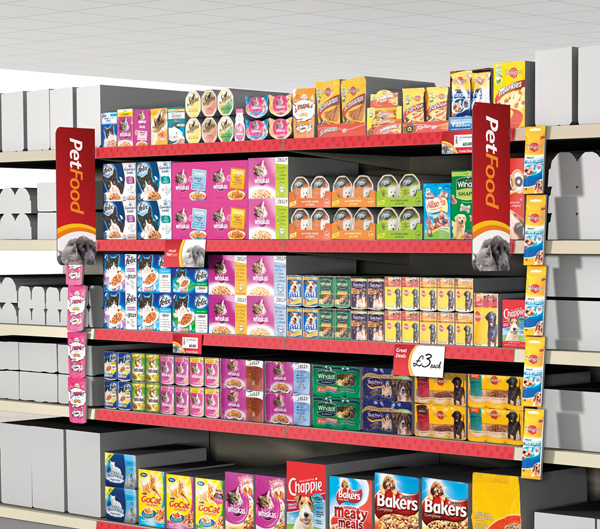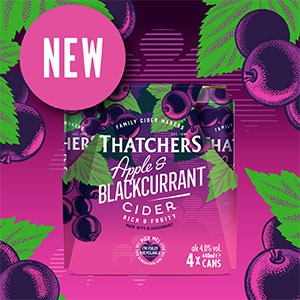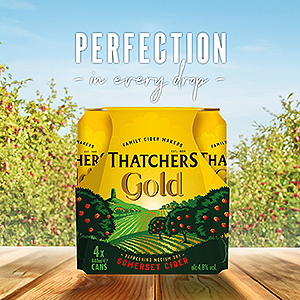David Sands says he isn’t back in retail – because he’s never really been away – but with two new retail ventures on the go, SLR thought it was time to head to his home town of Milnathort to discuss the future, and past, of one of Scotland’s most successful convenience retailers.
by Kevin Scott
On 10th January 2012 the end of an era arrived when the 200 year-old independent convenience chain David Sands was sold to the Co-op. The business had undergone phenomenal growth under the stewardship of David Sands and his father Lindsay, and on that day the business was sold for an undisclosed sum (which it’s safe to say was comfortably into seven figures), leaving David with a full bank account and an empty diary.
It’s not been all cocktails and cruises since then though. Invariably referred to in the trade and mainstream press as a ‘canny’ businessman, David has built up a portfolio of interests since 2012 focussing mainly on property, however in this last couple of months his name resurfaced in the convenience trade with the opening of a new Nisa store in Glenrothes (in partnership with former David Sands colleague Keith Fernie), and the opening of Pinkie Farm Store, in which David joins former Bellevue owner Graham Benson and ex-Bestway Scotland manager Colin Smith. So, with plenty to talk about, SLR headed up to meet David in a coffee shop in his home town of Milnathort to talk retail, politics and the pursuit of pleasure. “Since selling the business my interest in the convenience business has never wavered,” says David. “Over that two year period I’ve spent a lot of time visiting stores across the country and in Europe.”
On his journeys he has noted that there are many differences, but just as many striking similarities on the continent. “Fresh is better, but they are going through the same issues we are. I spent a bit of time in Eastern Europe and they have a lot of independents, but national chains are moving in. The issues indies in Poland talk about are the same ones I’ve been hearing for the last 20 years.”
Regularly visiting other stores is something David has long espoused. One of the reasons the Sands business was so progressive was down to David’s fascination with retail, something that has taken him across the globe to source new ideas, gaining valuable insight into the potential of everything from food to go and coffee to voice-activated warehousing systems. “You’re a pretty poor retailer if you can’t go into someone else’s store and find something of interest,” says David. It was in fact on a visit to the US in the 1990s that David discovered something that was to change the business that bore his name, and ultimately lay the foundations for his new Nisa store in Glenrothes. He explains: “The first time I went to the US properly was mid 90s and I came back full of enthusiasm about coffee. I remember holding a manager’s meeting and telling everyone how big coffee was going to be in the UK. Everybody thought I was absolutely mad. “We tried it over the years but we were too early.
Even now, it depends on your location of course – if you’re a village rural store I don’t know if coffee is your best strategy. If you’ve got a transient location and a lot of people passing your door though, you really need a good coffee and food to go offer.” David also encouraged his staff to soak up ideas and actively seek them out. He went as far as sending a team to work for the Rutters chain in the US, which led to food to go becoming such a profitable and essential part of the Sands offering. So much so that an own-label range – David’s Kitchen – was spawned off the back of it. When the David Sands business was sold, David insisted that he retained the David’s Kitchen trademark and it now forms an important part of the new store. He says: “Rutters had a very good food to go offer.
We brought that back and wanted to establish our own food to go offer and also a coffee shop element to it, and perhaps a bakery. At David Sands there was a type of store we were working on latterly that tended to be a new build store with lots of parking, focussing on food to go. I didn’t have enough time ultimately to prove how successful that could be.” It’s the desire to complete the job that has drawn David back into the convenience sector: “There would be little point in me going back and doing a typical David Sands store because I’ve done that.
If we can develop a new convenience format then that excites me and gets me up in the morning.” So when the opportunity arose to acquire a pub site in Glenrothes, David struck a deal with former colleague Keith Fernie, who was made redundant when the Co-op closed the former David Sands head office. “Keith had been with David Sands since he left school and worked his way up to supervisor, then store manager and trading manager,” he says. “He was a good colleague and we began chatting about doing something together. My sense of it was that I’d done 25 years as MD, driving a business, and I felt I didn’t want to necessarily repeat that but I’d be delighted to help Keith do it.” Revealingly, David spends a lot of time thinking about how staff are rewarded as he believes this is an area that can set one business apart from another. At Glenrothes, for example, the whole team will receive an extra week’s pay in bonus if the shop hits a certain level of turnover. “It’s an ambitious target but it focuses everyone’s mind. Nothing will delight me more than hitting that target, and we will.”
The store is on the site of a former pub, which was demolished, leaving room for a brand new, top spec c-store. The opening was delayed for a couple of months due to a number of issues with utilities, and David says he’s surprised by the barriers small businesses still have to jump over. “No one from the Government or the local authorities come out to help,” he says, exasperated. “They come out to make sure you’re complying with their rules but they are never there when you need help to achieve what you’re doing. They’ve forgotten that they’re there to serve the public.
When a customer comes into our store we have to look after them, we’ve got to be polite, try to fulfil their needs in the hope they’ll return. In the public sector there’s no competition, you’ve no choice with who you use and so we’ve allowed a culture that is anti-business to flourish.” A key driver behind the Glenrothes store is buying local wherever possible to give the store that point of difference, but it’s something David believes goes beyond just providing customer choice. “I believe strongly that you’ve got to give back to your community, so we use local builders, employ local people, buy from local suppliers.
There’s an economic cycle where everyone is trading with each other and there’s no money being sucked out of the community and going to corporate headquarters elsewhere.” The main supplier to the new store is Nisa but this is backed up by a roster of local suppliers. Central to the store’s offering is the David’s Kitchen range. The range extends across a raft of hot and cold products – with everything prepared and packaged in the store’s own kitchen and labelled with David’s Kitchen branding. A qualified chef, who happens to be David’s brother-in-law, leads a team and product development and refinement is a key aspect of this remit. David says: “Our flagship product right now is coleslaw. We make a range of coleslaws, and we’re selling hundreds of pots a week. People are coming from all over for it. We opened on 1st May and the products are flying.” This early success of the David’s Kitchen brand has brought great satisfaction and David is pleased to be continuing the relationship he previously enjoyed with Nisa, a company he says has changed hugely since he last dealt with it. “One of the biggest surprises for me was recently going to the Nisa exhibition and seeing how far down the retail road they’ve come,” he explains. “I was quite taken aback.
They are so focussed on being retailers now, on the Nisa brand – and there are great plans to develop their own label. They’ve got a lot of new people with new ideas and filled with enthusiasm, which is great to see.” Further changes are afoot at Nisa too, with the loss of Costcutter likely to weigh heavily on the group, even though its efforts to offset the loss have been admirable. “They can absolutely soak up the loss of Costcutter, very much,” says David. “They’ve known about this a long time. It’s a shame it’s happened, we were ‘Better Together’ so to speak, but Costcutter needs to find its own way.” A wry grin appears as David says the words ‘Better Together’. He has been outspoken on his views against Scottish independence, something he believes could have a huge negative impact on the convenience industry. “Most of our goods come from England, most of our suppliers are down south. Now, whilst the pro-independence lobby tell you there will be no change, I would question that on all sorts of levels.” He says questions remain on currency, on the possibility of border controls, on the ability to raise finance. “I simply believe we’re in danger of our costs rising for no discernable benefit. One of the arguments is that we’re better looking after our own affairs, but in honesty, I think we already do. I’ve never once thought, ‘my goodness this London Government are stopping me from doing what I want’. To me, it feels like the Scottish Parliament is going to get more powers [in the event of a no vote], and that’s probably a good thing. It’s a massive decision though – one of the biggest we’ll ever make.” Rising industry standards To say David has grown up in retail would be an understatement. From the age of 12, his father Lindsay would involve him in the business and by 16 he was running shifts. He then left the family business to work for Sainsbury’s, before coming back to take control.
“For second generation retailers, it’s not enough to get a degree. That’s fine, but go and work somewhere else. What that taught me was just how good our competition is; that never left me.” Knowing the competition inside out is the first step to overcoming it, says David. “Sometimes I’m asked to go and speak to a retailer who might be struggling, so the first thing I’ll do is take them for a walk around the competition. I did one not long ago and it was the first time he’d been in those stores, so he had an opinion about what those stores were like which was not the reality at all. “One of the other dangers is always trying to match competitors on price. Inevitably, when competition opens up, retailers immediately cut the price of bread and milk and Glen’s vodka.
Your customer is going to be saying, that’s great but why weren’t you doing it before? So, yet again, ask yourself: are you investing in your store, in your people? What’s your point of difference?” Technology is playing an increasing role in convenience, and while David dismisses self-service tills as “too impersonal”, he believes contactless payment could be very interesting. “It’s huge in London but not elsewhere yet. It’s perfect for c-stores because basket spend is quite low.” Technology is set to play a defining role at Glenrothes, then. “One of the challenges is to redefine convenience. We want to develop an app where people can order their lunch from their desk and then come by and pick up it. That makes their life more convenient which is good for us. It feels convenient, and that’s the test: what do you do to make the lives of your customers more convenient? If you’re not asking yourself that every year then I’m not sure you’re relevant.” The key to being successful as an independent, he says, is to make that independence work. “Take the local shop here in Milnathort [Giacopazzis]. They have a Nisa fascia but they make and sell their own ice cream. You could never have a company store manager develop an ice cream business. But they’re doing it and it’s great – that’s good independence; using the strength of the group they’re in but use their own flair.
That’s when you get successful businesses.” David’s Kitchen allows the Glenrothes store to do likewise. Of the 25 staff, six are employed full time in the kitchen. “We want the store to be a destination,” says David. Another store that will undoubtedly become a destination is Pinkie Farm Store. David’s involvement in this venture came when Graham Benson asked him to evaluate the potential of a site he was looking at. David says: “I thought it was excellent, told him to go for it. He said he wasn’t a retailer and it went from there.” Describing the first few days trading as “great”, David says the main challenge has been keeping up with demand. “Colin has worked so hard and he’s done a great job.” Beyond these retail interests David has invested in commercial and residential properties – including two developments of eco-homes, all of which keeps him as busy as he likes to be. “The first thing I did after selling the business was to extend the house to include an office,” says David. “I then employed my old PA. That helps discipline me; she’s in a few days a week, and those are my work days.”
The sale has left David in the very advantageous position of being able to choose projects that excite him. “There’s a theme about trying to get involved with things a bit different, a bit off the mainstream,” he says. “I don’t lose sight of commercial realities, projects have to make money, but if I’m interested I could well get involved.” Outside of work David – a passionate hill walker – has become involved with the Duke of Edinburgh scheme, which has seen him take part in a number of expeditions with local kids, enabling them to see what the great outdoors has to offer. He says: “It would be easy to write cheques to worthy causes, but I enjoy giving my time. A lot of people working don’t have the chance to do that.” So what’s his five year plan? “I never have five year plans. I abhor budgets and forecasts; they’re a waste of time.None of us are qualified to say what’s will happen over the next year. Our plan, for what it’s worth, is to enjoy what we’re doing, have a successful and profitable store in Glenrothes, get a second one open and take it from there. It’s about enjoying what we’re doing, and we are.”



